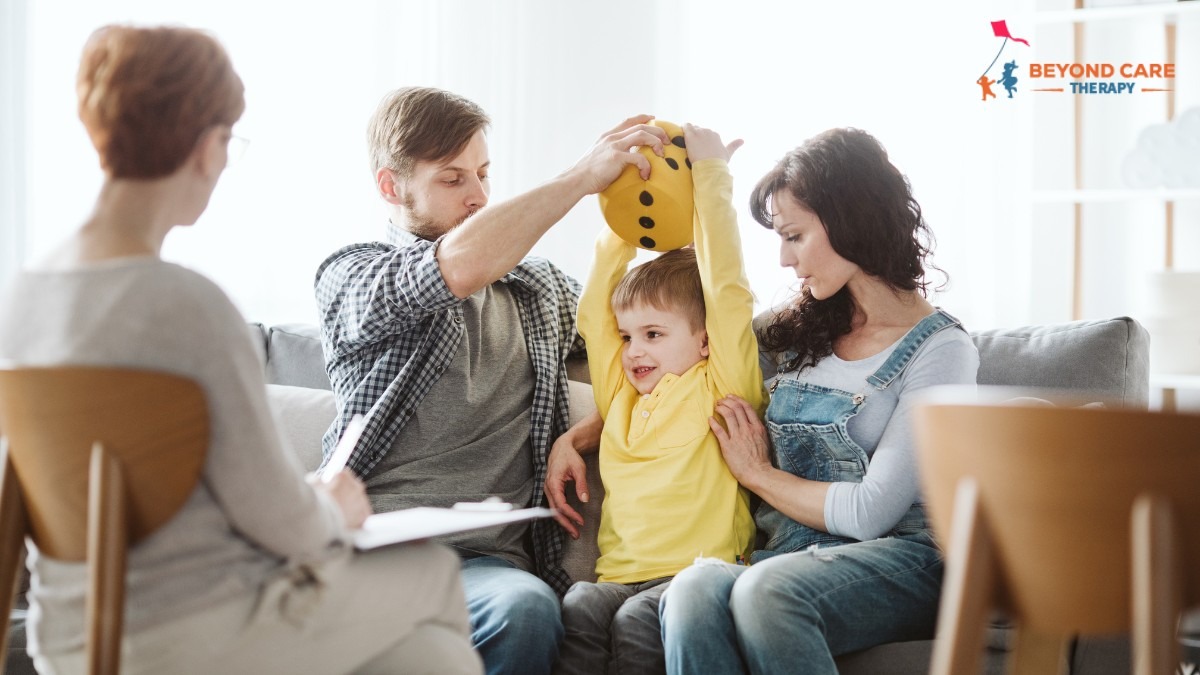Parenting a child with unique behavioral needs can feel overwhelming. According to the CDC, about 1 in 36 children in the U.S. are diagnosed with autism spectrum disorder (ASD).
Applied Behavior Analysis (ABA) therapy has proven to be an effective approach for helping children on the spectrum develop essential skills. However, ABA doesn’t stop with the child—parents are vital participants in this process.
ABA parent training empowers parents with tools to address challenging behaviors, reinforce positive actions, and create a supportive home environment. But what does effective training look like, and how can parents set realistic goals? Let’s break it down.
What Are ABA Parent Training Goals?
ABA parent training goals focus on equipping parents with strategies to support their child’s behavioral and developmental progress. These goals can include improving communication, managing behaviors, and fostering independence in everyday tasks.
By setting clear, actionable objectives, families can work collaboratively with ABA therapists to ensure consistent learning both at therapy sessions and at home.
Goals are highly individualized. They depend on the child’s unique needs and the family’s circumstances. For example, some parents may focus on reducing tantrums, while others might prioritize teaching self-care skills. Regardless of the specifics, the overarching aim is to empower parents to become active facilitators of their child’s growth.
Why Is Parent Involvement Crucial in ABA Therapy?
Parents are the cornerstone of their child’s development. While ABA therapists provide professional guidance, parents spend the most time with their child and can significantly influence progress. Here are a few reasons why parent involvement is essential:
- Consistency Across Environments: ABA therapy techniques are most effective when applied consistently. Parent training ensures that skills learned during therapy are reinforced at home, school, or community settings.
- Faster Skill Acquisition: When parents actively participate, children often learn new skills more quickly. This consistency helps generalize behaviors across different situations.
- Long-Term Success: Therapists are temporary, but parents are lifelong advocates. Learning ABA principles empowers parents to support their child’s growth long after therapy ends.
Common Goals in ABA Parent Training
ABA parent training goals are diverse, covering a wide range of areas to suit each family’s needs. Below are some common objectives:
Improving Communication Skills
For many children, communication can be a significant challenge. Training often focuses on teaching parents how to use visual aids or communication devices, reinforce verbal attempts or alternative communication methods, and create opportunities for the child to request or share information.
Managing Challenging Behaviors
Behavioral issues, such as tantrums or aggression, are common concerns. ABA training helps parents identify triggers and antecedents, implement positive reinforcement strategies, and use techniques like extinction to reduce undesirable behaviors.
Teaching Daily Living Skills
Independence is a key goal in ABA therapy. Parents learn to break tasks into smaller, manageable steps, use prompting and fading to teach self-care (e.g., brushing teeth, dressing), and track progress and adjust strategies as needed.
Encouraging Social Skills
Social interactions can be challenging for children on the spectrum. Parent training often includes practicing turn-taking or sharing activities, encouraging eye contact and appropriate greetings, and setting up playdates or social opportunities to practice skills.

How to Set Realistic ABA Parent Training Goals
Setting achievable goals is crucial for success. Here are steps to consider:
- Collaborate With Your Therapist: Work closely with your ABA therapist to identify priority areas. They can guide you on which goals are realistic based on your child’s developmental level.
- Focus on Specific Behaviors: Vague goals like “improve communication” can be hard to measure. Instead, aim for specific outcomes like “teaching the child to say ‘help’ when they need assistance.”
- Celebrate Small Wins: Progress may be slow, but every step forward matters. Recognize and celebrate milestones to stay motivated.
4 Tips for Success in ABA Parent Training
Consistency and patience are key when implementing ABA techniques. Here are some tips to help:
- Stay Informed: Attend training sessions and ask questions. Understanding the “why” behind strategies can make them easier to implement.
- Practice Regularly: Set aside time daily to practice ABA techniques. Consistency helps reinforce skills.
- Be Patient: Progress takes time. Stay positive and remember that even small improvements are valuable.
- Keep Communication Open: Maintain regular communication with your ABA therapist. Share successes and challenges to fine-tune strategies.

Collaborative Success: The Parent–Therapist Partnership
Effective ABA therapy relies on collaboration. Parents and therapists must work together to:
- Set clear goals and expectations.
- Monitor progress and adjust plans as needed.
- Ensure consistency between home and therapy sessions.
This partnership creates a strong support system for the child, fostering growth and success.
Partner With Beyond Care Therapy for Effective ABA Support
Are you ready to take the next step in supporting your child’s growth? Beyond Care Therapy offers comprehensive ABA therapy tailored to meet your family’s unique needs. Our experienced therapists collaborate with parents to develop and achieve meaningful ABA parent training goals.
Whether you’re focusing on communication, behavior management, or daily living skills, we’re here to guide you every step of the way. Contact us today to learn how we can support your family. We proudly serve families in Utah, Texas, Arizona, Massachusetts, and surrounding areas. Let’s work together to create a brighter future for your child!

